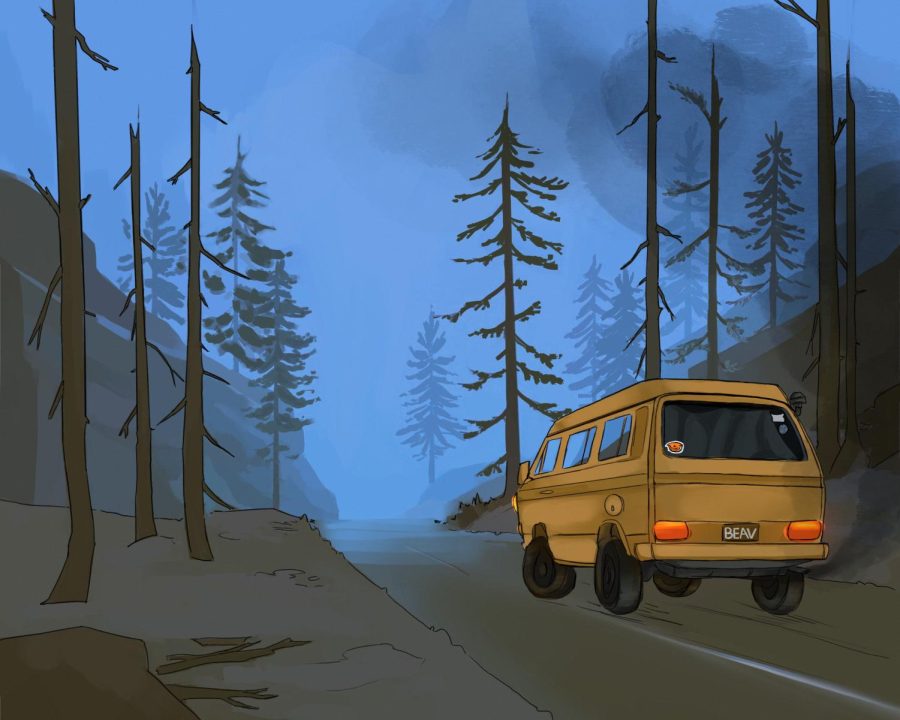OSU climate report says humanity is in a climate crisis
November 28, 2022
Humanity is unequivocally facing a climate emergency.
This is the main finding that Oregon State University scientists in collaboration with international states found in their October report.
The report, “World Scientists’ Warning of a Climate Emergency 2022,” published in the BioScience journal on Oct. 26, warns that 16 of 35 planetary vital signs point to a climate crisis. As trends in variables such as CO2 emissions, world population, global tree cover loss and energy consumption continue to increase, the report says that the effects of climate change, which disrupt tens of millions of people presently, have been increasing in frequency and intensity.
The lead authors, William Ripple, a distinguished professor of ecology at OSU, and postdoctoral researcher Christopher Wolf were joined by fellow OSU scientists and international scientists who are credited as co-authors on the report. This report comes as a follow-up to “World Scientists’ Warning of a Climate Emergency 2021,” which Ripple and Wolf were lead authors on as well.
“We are now seeing many climate-related disasters, including widespread floods, wildfires, and extreme heat,” Wolf said. “It is very likely that these disasters will continue to increase in frequency and severity, leading to further human suffering. So, we feel that it is important to acknowledge that we are in the midst of a climate emergency.”
In 2021, Ripple and Wolf compiled data from sources including the Food and Agricultural Organization of the United Nations, The World Bank, and NASA, on 16 planetary vital signs they thought would best reflect the state of climate change. The 2022 report adds to these compiled datasets, and explores how the effects of climate change are affecting communities today.
Matthew Betts, a professor in the Department of Forest Ecosystems and Society at OSU, is a co-author on the 2022 report, and stresses the importance of the report’s focus on “untold human suffering.”
“One of the parts of this paper that wasn’t emphasized much [in Ripple and Wolf’s previous papers on climate change] is that this really is a global equity issue,” Betts said. “The problem is that it’s all of us in the developed world that are burning most of the carbon, and it’s people in developing countries that will pay the price.”
In fact, Ripple says that people in developing countries are already paying the price of climate-related disasters. Ripple points out deadly heat waves that ravaged Pakistan and India in March and April of this year.
“In the paper we recorded climate-related disasters for the year 2022,” Ripple said. “By this last summer, there were deadly floods in Pakistan that killed over 1,000 people and flooded roughly a third of the country, impacting 33 million people including 16 million children.”
Ripple and Wolf agree that it is important to consider international perspectives when reporting on an issue like climate change, which affects all of humanity, but some places more than others.
“Because of the global nature of climate change and how its effects vary spatially, having a diverse group of international co-authors was a top priority,” Wolf said. “Their insights helped ensure that our study is globally relevant and that our proposed steps for climate mitigation are realistic and equitable.”
Ripple and Wolf hope that their updated report will have the same reach as their previous works, papers on climate change they have been periodically releasing to remind policymakers and the general public of the mounting climate crisis, their most previous installment being the 2021 report. Their 2019 installment in the series has been co-signed by over 14,000 scientists from 158 countries.
Currently, their 2022 report has been reported on by 107 news outlets around the world, and has reached over 4 million people on Twitter through people retweeting the link to the report.
Betts explains that these constant climate updates Ripple and Wolf put out demand attention because of their consistency.
“The key objective here was to keep bringing it up,” Betts said. “The 24-hour news cycle is brutal. People will hear about something really important and then it’s forgotten within days.”
Ripple and Wolf find some solace in the numbers they have combed through to compile this report. Namely, there is a “dramatic rise” in institutional divestment from fossil fuel companies in many countries. Betts agrees that there is room for hope, if this hope is met with efficient and coordinated efforts to decrease greenhouse gas emissions.
“We’re gradually coming up with solutions,” Betts said. “Is it fast enough right now? No, it’s not. But even the rate of improvement is increasing.”
A film entitled “The Scientist’s Warning” was released concurrently with the 2022 report, and shows how climate change is crippling developing countries.
Betts notes that developed countries are experiencing environmental phenomena too, such as the Oregon heat dome June 24-29 of this year that killed at least 96 people.
“Catastrophic climate change has arrived and the situation is very likely to get much worse in the short- and intermediate-term,” Wolf said. “To avoid the most dangerous future scenarios, we need transformative and socially just changes across many aspects of society.”
Betts says that climate change is happening at a rate that hasn’t been seen for thousands of years, and that it’s known to be caused by human emissions.
“We’re already seeing some pretty nasty things that are happening as a function of climate change. If you think about it, we’ve really only warmed about 1 degree Celsius, and we could be warming up to 2 and a half; so if we are seeing these changes already, it highlights the need to change our behavior, and quickly,” Betts said.
























































































































